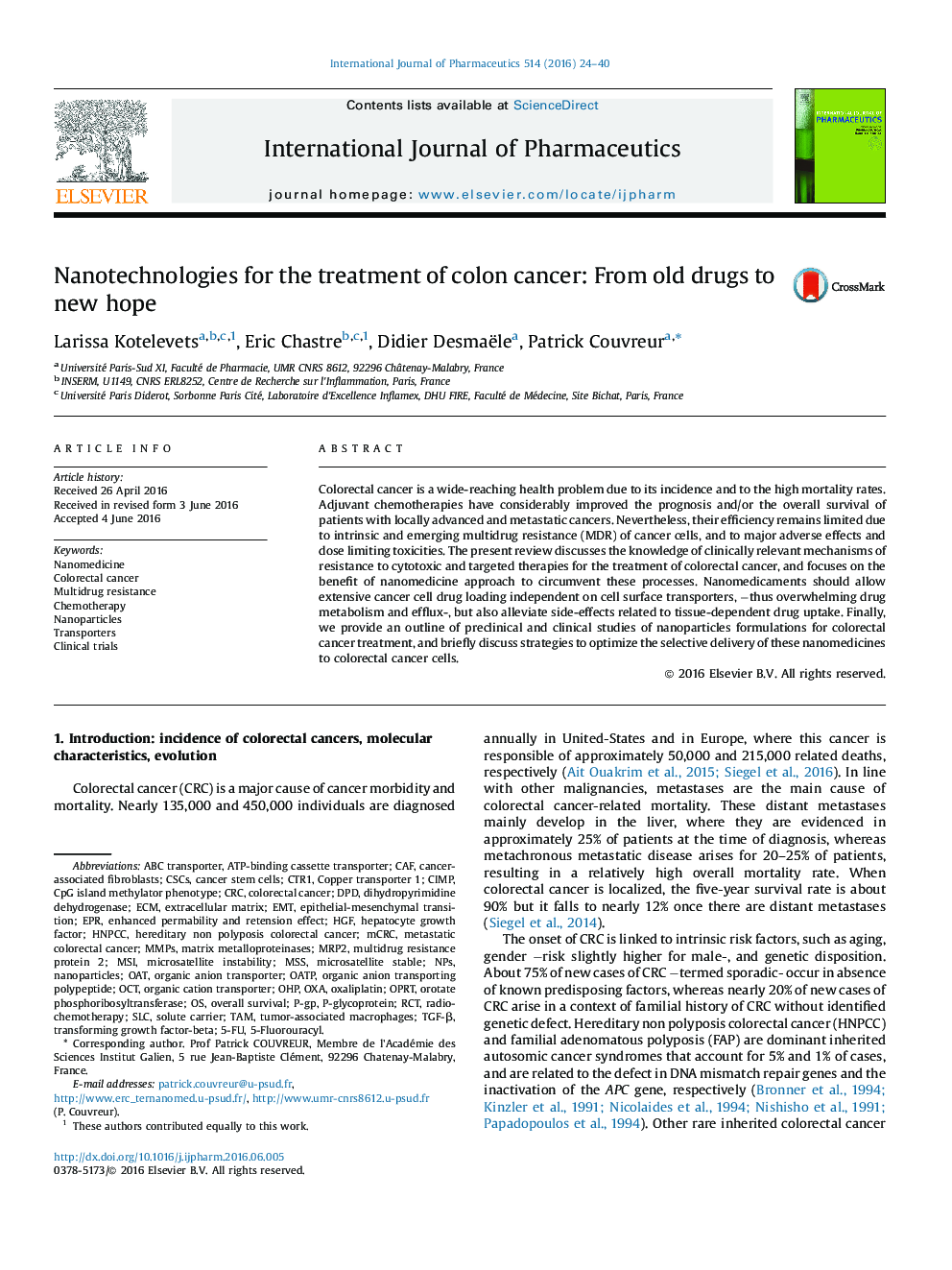| Article ID | Journal | Published Year | Pages | File Type |
|---|---|---|---|---|
| 5550932 | International Journal of Pharmaceutics | 2016 | 17 Pages |
Colorectal cancer is a wide-reaching health problem due to its incidence and to the high mortality rates. Adjuvant chemotherapies have considerably improved the prognosis and/or the overall survival of patients with locally advanced and metastatic cancers. Nevertheless, their efficiency remains limited due to intrinsic and emerging multidrug resistance (MDR) of cancer cells, and to major adverse effects and dose limiting toxicities. The present review discusses the knowledge of clinically relevant mechanisms of resistance to cytotoxic and targeted therapies for the treatment of colorectal cancer, and focuses on the benefit of nanomedicine approach to circumvent these processes. Nanomedicaments should allow extensive cancer cell drug loading independent on cell surface transporters, âthus overwhelming drug metabolism and efflux-, but also alleviate side-effects related to tissue-dependent drug uptake. Finally, we provide an outline of preclinical and clinical studies of nanoparticles formulations for colorectal cancer treatment, and briefly discuss strategies to optimize the selective delivery of these nanomedicines to colorectal cancer cells.
Graphical abstractDownload high-res image (296KB)Download full-size image
